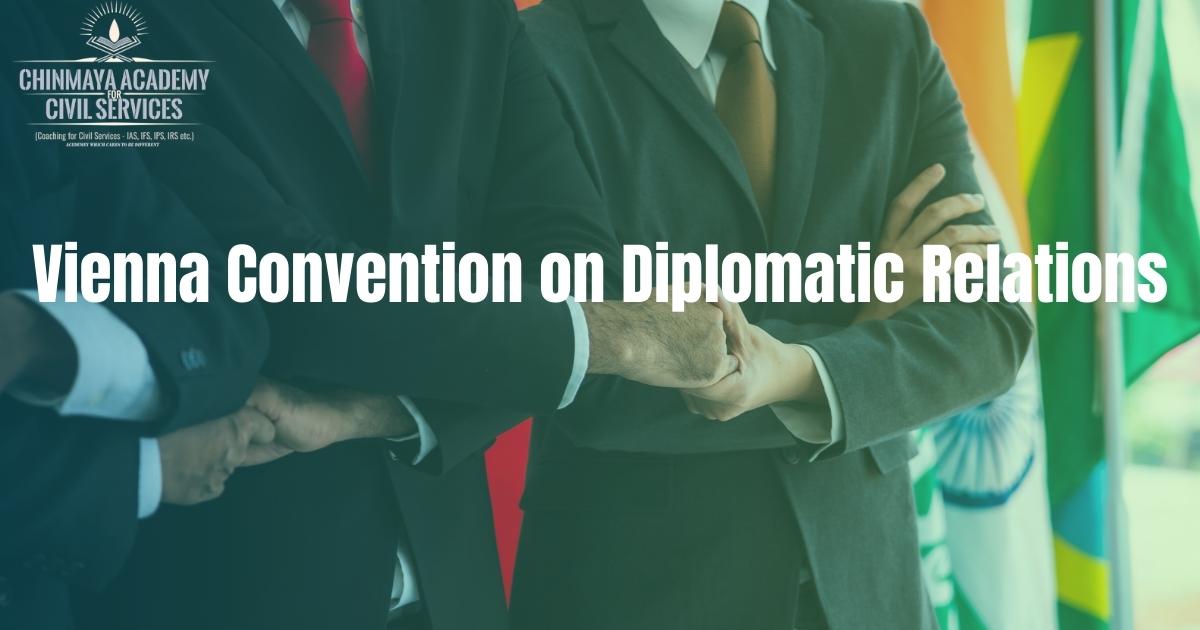 The term “Vienna Convention” can refer to any of a number of treaties signed in Vienna, most of which are related to the harmonisation or formalisation of the procedures of International Diplomacy. The treaty being referred to by the MEA in this instance is the Vienna Convention on Diplomatic Relations (1961)
The term “Vienna Convention” can refer to any of a number of treaties signed in Vienna, most of which are related to the harmonisation or formalisation of the procedures of International Diplomacy. The treaty being referred to by the MEA in this instance is the Vienna Convention on Diplomatic Relations (1961)
- Provides a complete framework for the establishment, maintenance and termination of diplomatic relations on a basis of consent between independent sovereign States
- The Vienna Convention on Diplomatic Relations entered into force on April 24, 1964 and is nearly universally ratified, with Palau and South Sudan being the exceptions.
- The Convention codifies the longstanding custom of Diplomatic Immunity
- in which diplomatic missions are granted privileges that enable diplomats to perform their functions without fear of coercion or harassment by the Host country.
- It affirms the concept of “inviolability” of a diplomatic mission, which has been one of the enduring cornerstones of international diplomacy.
Diplomatic Immunity
- Immunity from the criminal jurisdiction of the receiving state
- Immunity from the civil jurisdiction of the receiving state, with some exceptions
- Immunity from arrest and detention
- Immunity from search and seizure
- Inviolability of their person and of their residence and premises
- Freedom of movement and communication
Host Country
- As per the Vienna Convention, a “receiving State” refers to the host nation where a diplomatic mission is located.
- Article 22 of the Convention deals with obligations with regards to the premises of the Mission.
Vienna Convention and India
- In 1965, India became a member of the Vienna Convention on Diplomatic Relations.
- To put the Vienna Convention into force, India passed the Diplomatic Relations (Vienna Convention) Act, 1972
 Chinmaya IAS Academy – Current Affairs Chinmaya IAS Academy – Current Affairs
Chinmaya IAS Academy – Current Affairs Chinmaya IAS Academy – Current Affairs
